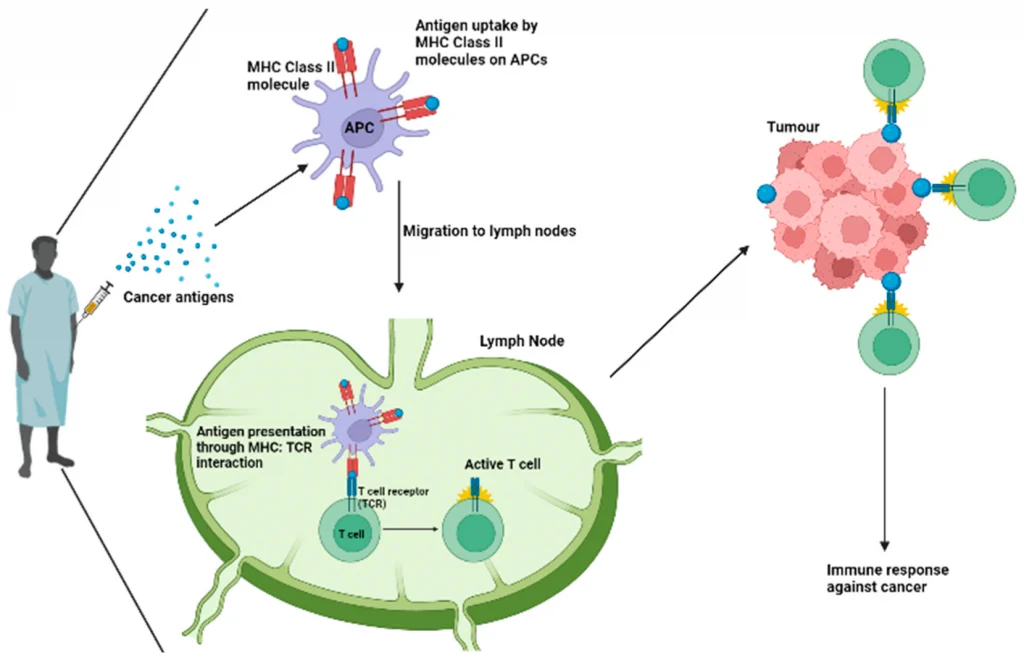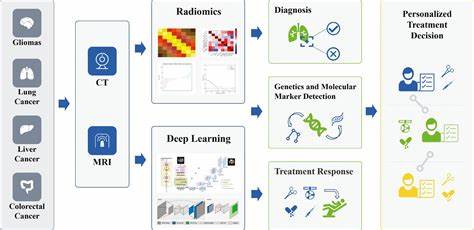Cancer treatment has made significant advancements over the past few decades, with research continuously evolving to provide more effective, targeted, and personalized therapies. As we step into 2025, the landscape of cancer treatment is poised for even greater breakthroughs. The combination of innovative technologies, cutting-edge research, and a deeper understanding of cancer biology is leading to the development of promising treatments that could change the way cancer is diagnosed and managed. In this article, we’ll explore some of the most exciting breakthroughs in cancer treatment expected to make an impact in 2025, offering new hope for patients around the world.
Advancements in Immunotherapy
Immunotherapy has emerged as one of the most promising approaches in cancer treatment over the past few years. By harnessing the body’s immune system to fight cancer, immunotherapy has revolutionized treatment for certain types of cancers, including melanoma, lung cancer, and leukemia. In 2025, we expect even more groundbreaking advancements in this field, particularly with the development of personalized cancer vaccines and next-generation immune checkpoint inhibitors.

Personalized cancer vaccines aim to tailor the immune response to each patient’s unique cancer profile, allowing for a more precise attack on the tumor while minimizing damage to healthy cells. This individualized approach is expected to greatly improve the effectiveness of immunotherapy, leading to better outcomes and fewer side effects.
Additionally, immune checkpoint inhibitors, which work by blocking the proteins that prevent immune cells from attacking cancer cells, are showing promise in treating a wider range of cancers. In 2025, we anticipate breakthroughs in the development of novel checkpoint inhibitors and combination therapies that can enhance immune responses and overcome resistance, further expanding the potential of immunotherapy.
Targeted Therapies and Precision Medicine
Targeted therapies are designed to specifically target cancer cells while leaving healthy cells unharmed. This approach has proven to be highly effective in treating cancers with specific genetic mutations or molecular abnormalities. In 2025, advancements in precision medicine will enable doctors to better understand the genetic makeup of individual cancers, leading to more personalized and effective treatment plans.
Through the use of advanced genomic sequencing and molecular profiling, researchers are identifying specific genetic mutations that drive cancer growth. This has led to the development of targeted therapies that can block these mutations and prevent cancer cells from proliferating. In 2025, we can expect an expansion of targeted therapies to include new cancer types and even more precise targeting, offering patients treatments that are tailored to their genetic profile.
Moreover, the integration of artificial intelligence (AI) in cancer research is accelerating the development of targeted therapies. AI is helping researchers identify new drug candidates, analyze large datasets, and predict how cancer cells will respond to specific treatments. These innovations are expected to streamline the drug discovery process and bring targeted therapies to market faster than ever before.
Gene Editing and CRISPR Technology
Gene editing has emerged as a game-changing technology in the fight against cancer, and by 2025, its applications in cancer treatment are expected to be more refined and widespread. The CRISPR-Cas9 gene-editing tool, in particular, has shown tremendous potential in modifying the DNA of cancer cells to correct genetic mutations or inhibit the growth of tumors.
In 2025, researchers will likely refine the use of CRISPR technology to target specific cancer-causing mutations, offering more precise treatments. One area where CRISPR holds great promise is in the development of gene therapies that can modify a patient’s immune cells to better recognize and destroy cancer cells. These therapies could potentially cure certain types of cancer by permanently altering the genetic makeup of immune cells to target cancer more effectively.
Furthermore, gene editing could also be used to correct mutations in cancer cells, making them more susceptible to other treatments like chemotherapy or immunotherapy. As gene-editing techniques continue to improve, we can expect to see more clinical trials and, eventually, successful treatments based on CRISPR technology.
Liquid Biopsy for Early Detection
Early detection is critical in the successful treatment of cancer, and liquid biopsy is a revolutionary technique that has gained significant attention in recent years. This non-invasive test detects cancer-related genetic material, such as DNA or RNA, in a patient’s blood or other bodily fluids. Liquid biopsy has the potential to identify cancer at its earliest stages, even before symptoms appear, leading to earlier and more effective treatment options.
By 2025, liquid biopsy technology will likely be more advanced, enabling doctors to detect a broader range of cancers with greater accuracy. This could lead to a significant shift in how cancer is diagnosed and managed, as liquid biopsy could eventually replace traditional biopsy methods in many cases. Moreover, liquid biopsy could also be used to monitor treatment progress and detect cancer recurrence, offering a more dynamic and personalized approach to cancer care.
Advanced Radiotherapy and Nanomedicine
Radiotherapy, a common treatment for various types of cancer, uses high doses of radiation to kill cancer cells. In 2025, advancements in radiotherapy are expected to make treatments more targeted and less damaging to surrounding healthy tissue. Techniques such as proton therapy and particle beam therapy are becoming more widely available and offer a more precise delivery of radiation to tumors.
Proton therapy, for example, uses charged particles instead of X-rays, allowing doctors to deliver radiation more accurately to tumors while minimizing damage to nearby healthy tissue. This treatment is particularly useful for tumors located near sensitive organs, such as the brain or spine. In 2025, proton therapy and other advanced radiotherapy techniques are expected to become more widely accessible and refined, improving patient outcomes and reducing side effects.
Nanomedicine is another exciting development in the field of cancer treatment. This approach involves the use of nanoparticles to deliver drugs directly to cancer cells, allowing for more precise treatment with fewer side effects. Nanomedicine can also be used to enhance the effectiveness of existing therapies, such as chemotherapy, by improving the delivery and targeting of drugs. In 2025, we can expect to see more clinical trials and treatments utilizing nanomedicine to treat various types of cancer.
Artificial Intelligence in Cancer Diagnosis and Treatment
Artificial intelligence (AI) is increasingly being integrated into cancer diagnosis and treatment, providing new ways to detect, analyze, and treat cancer more effectively. In 2025, AI will play a more prominent role in cancer care, helping doctors identify patterns in medical images, genetic data, and patient records that may be difficult for humans to spot.

AI-powered tools are already being used to assist in diagnosing cancer from medical imaging, such as CT scans and MRIs. These tools can analyze images with high precision, identifying tumors or abnormal growths that might be missed by the human eye. Additionally, AI algorithms can help doctors predict how individual cancers will respond to specific treatments, enabling more personalized and targeted therapies.
As AI technology continues to evolve, we can expect even greater advancements in its use for cancer treatment. AI could help discover new drug candidates, optimize treatment regimens, and predict patient outcomes with greater accuracy. This could lead to faster, more effective treatments and improved survival rates for cancer patients.
Conclusion
The breakthroughs in cancer treatment expected in 2025 represent a new era of personalized, targeted, and more effective therapies. From immunotherapy and targeted therapies to gene editing and liquid biopsy, these advancements have the potential to save lives, reduce side effects, and improve the quality of life for cancer patients. As research and technology continue to evolve, cancer treatment will become more precise, personalized, and effective, offering hope to millions of people around the world. With these exciting developments on the horizon, the future of cancer treatment is brighter than ever before.

Leave a Reply